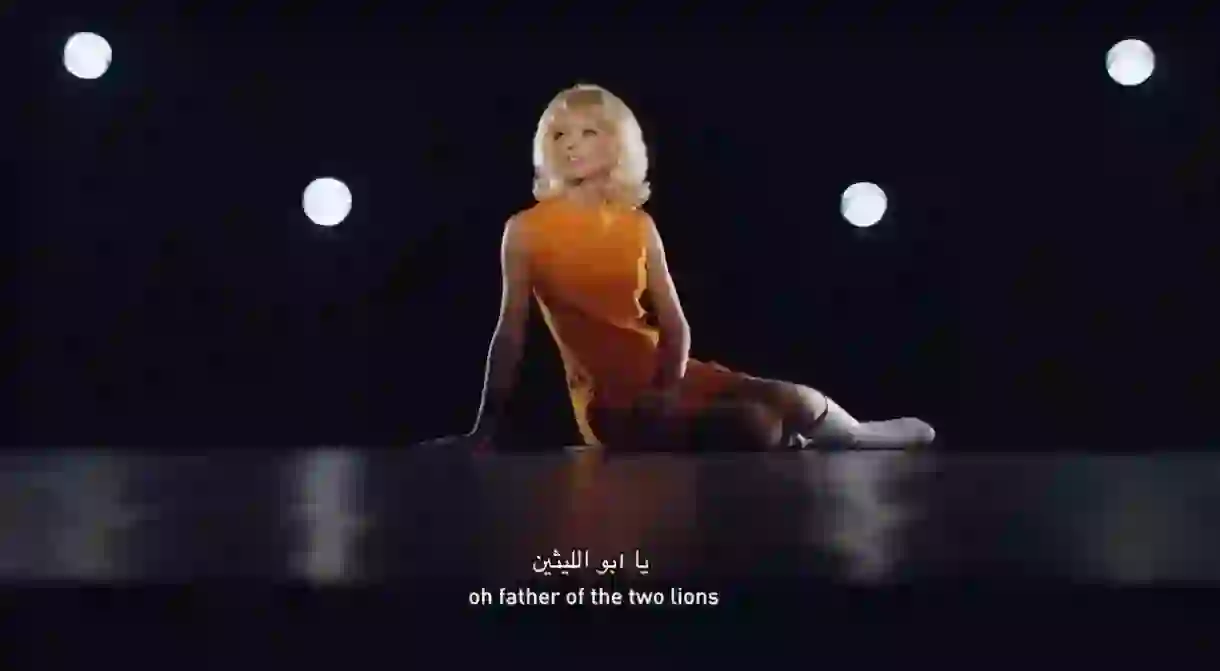The Iraqi Artist Exposing the Absurdity of Propaganda

Adel Abidin wants you to see past the obvious. The 45-year-old contemporary artist creates visual installations that tackle the media we see on a daily basis – his work forces viewers to dig deeper and understand the images we are exposed to, questioning why they are there in the first place. Here’s what you need to know about the artist and his work.
Background
Abidin deals with universal controversial topics, but he is not a journalist or politician; he is a satirical artist born in dictatorial Iraq in the midst of Saddam Hussein’s so-called ‘personality cult’. Raised in a propaganda-driven regime that saw political media permeating people’s daily lives in the form of posters, television emissions and more, his tongue-in-cheek work is a deep-dive into the visuals and concepts we are all exposed to on a daily basis, many of which we accept implicitly and are never truly forced to question.

Childhood in Iraq
Abidin’s childhood in Baghdad was characterised by mixed messages. Like many Iraqis, he was exposed to conflicting narratives from his parents, his peers and the media – to him, nothing made sense.
As he grew older, Abidin explains that everyone under Hussein’s rule learned to use “sarcasm, satire and double meaning to avoid punishment” in order to navigate this conflicting landscape – the same techniques he now uses as an artist to deconstruct the things we think we know.
Though he is now based between Amman, Jordan and Helsinki, Finland, Abidin’s work is still a response to his childhood in Iraq. He works with multimedia installations that dismantle famous images, controversial concepts and iconic pop culture references – often with tongue-in-cheek metaphors for our preconceived notions, which he aims to destroy.
If anything, he says, his fascination with media manipulation has only grown over the years, as advertising becomes more prominent and propaganda more subtle. “We live in the era of image,” he says “Everything is about surface appearances, even dating.”
Art that gives questions – not answers
Abidin’s work doesn’t provide opinions; instead, he asks questions, toying with our sense of normalcy, to force us to re-examine our beliefs. Abidin’s video installation Cover-Up! (2014) recreates the iconic scene of Marilyn Monroe and the gust of wind blowing up her white dress from The Seven Year Itch. Only in Abidin’s version, he substitutes an Arab man, also wearing a white dress, but a traditional thawb or robe. Cover-Up! poses questions about the validity of our beliefs and ideals around beauty, acceptance and tolerance.

Abidin says that when people are not allowed to form their own questions, conformity becomes a prison of sorts, crushing individuality. A recent metal sculptural work exhibited at Ateneum in Helsinki explores this concept, with Abidin prompting the viewer to consider the effects of state-enforced political correctness.

In one of his most renowned video installations, Three Love Songs (2010), Abidin exposes the absurdity of widespread propaganda. Three music videos play on separate screens with blonde women singing sultry songs in Arabic. The twist? At first glance the songs seem like the usual passionate love ballads, but the lyrics are from actual songs commissioned by Saddam Hussein during his reign to declare his glory and might.

Opening minds
Abidin’s work, like much of contemporary art, requires us to actively engage, to dismantle the superficial and grapple with what lies beneath, which in turn requires us to face our own biases and preconceived notions.
Abidin emphasises that there are no right or wrong answers, stating that “the questions are much more important.” He hopes viewers will discover their own questions, and take those questions out into the world when they leave his exhibitions. “Look deeper,” he says, “Anything you perceive beyond the surface will help you, not only in art but in life.”













